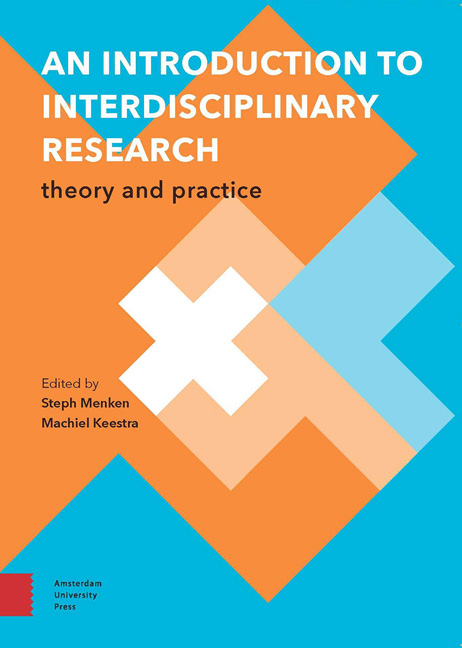Book contents
- Frontmatter
- Contents
- Acknowledgements
- Preface
- Part 1 The Handbook - ‘The What’
- 1 Introduction
- 2 What is Science? A Brief Philosophy of Science
- 3 The Disciplines
- 4 Interdisciplinarity
- 5 Complexity: The Main Driving Force Behind Interdisciplinarity
- 6 Interdisciplinary Integration
- Part 2 The Manual - ‘The How’
- 7 The Interdisciplinary Research Process
- 8 The Problem
- 9 Theoretical Framework and Research Question
- 10 How to Collect and Analyze your Data
- 11 Discussion and Conclusion(s)
- Part 3 Interdisciplinary Research in Practice
- 12 Interdisciplinary Research Example: Fogponics
- 13 Interdisciplinary Careers
- Further Reading
- References
- Colophon
3 - The Disciplines
- Frontmatter
- Contents
- Acknowledgements
- Preface
- Part 1 The Handbook - ‘The What’
- 1 Introduction
- 2 What is Science? A Brief Philosophy of Science
- 3 The Disciplines
- 4 Interdisciplinarity
- 5 Complexity: The Main Driving Force Behind Interdisciplinarity
- 6 Interdisciplinary Integration
- Part 2 The Manual - ‘The How’
- 7 The Interdisciplinary Research Process
- 8 The Problem
- 9 Theoretical Framework and Research Question
- 10 How to Collect and Analyze your Data
- 11 Discussion and Conclusion(s)
- Part 3 Interdisciplinary Research in Practice
- 12 Interdisciplinary Research Example: Fogponics
- 13 Interdisciplinary Careers
- Further Reading
- References
- Colophon
Summary
Before we introduce the concept of interdisciplinarity, we must first explain what an academic discipline is. It is, however, not easy to give an exact definition, as disciplines are often fragmented, heterogeneous, and subject to change. Furthermore, academic disciplines have always influenced each other and have sometimes incorporated elements of one another, further complicating the formulation of a unifying definition. These complicating factors in defining a discipline are illustrated in the next paragraph on the history of disciplines.
Academic disciplines: A brief history
Throughout history, scientists and philosophers have defined disciplines in quite different ways. An influential and traditional view lingers behind Popper's contention that scientists are not ‘students of some subject matter’ that would have some ‘boundaries’. It implicitly refers to a traditional view of scientific disciplines as being organized around distinct domains of reality. A discipline that has been admired by many in ancient and modern times and that is organized in such a way around a distinct and separate domain of reality is mathematics, which has also been considered very successful in terms of the quality and certainty of the knowledge it generates and its growth. Mathematics was held to be exemplary because mathematicians can more or less create their own ‘subject matter’ by providing definitions, axioms, and postulates upon which an elaborate geometry can be built. As long as one makes logically sound deductions from these ‘elements of geometry’ (in Euclid's terms), one can gain new insights that are definitely true and reliable. This example is still influential, also outside the field of mathematics, for example in econometrics and in quantum physics.
The influential scientist and philosopher of science Aristotle held that we could apply a similar approach to knowledge to subject matters outside of mathematics. Aristotle argued that the domain of disciplines like physics, biology, or psychology is equally determined by the nature and properties of their respective subject matter. Consequently, explanations pertaining to those disciplines must also refer to the defining factors of their domain. In the case of explanations in physics, for example, these should somehow be related to the nature of matter, its properties and its movements. Biologists explain their phenomena by eventually referring to the defining properties of organisms and their respective environments.
Information
- Type
- Chapter
- Information
- An Introduction to Interdisciplinary ResearchTheory and Practice, pp. 25 - 30Publisher: Amsterdam University PressPrint publication year: 2016
